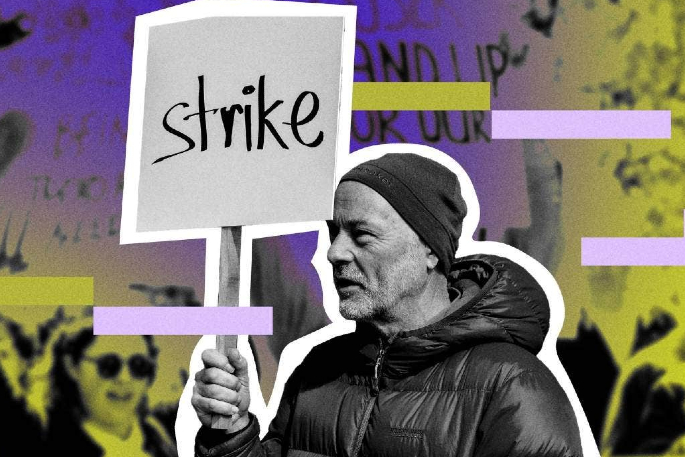Nearly every unionised teacher is walking off the job on March 16 in protest after negotiations over wages and working conditions stalled.
Like many workers all over the country, teachers have seen their wages stagnate against the rising cost of living.
Meanwhile, students need more than ever from their educators after years of Covid-19 lockdowns and health impacts, unions say.
Here are some numbers that break down where teachers are at.
66,000
The combined membership of the two teacher unions organising the industrial action, representing kindergarten teachers, primary and secondary teachers, and principals: The New Zealand Educational Institute (NZEI) Te Riu Roa, and the Post-Primary Teachers Association (PPTA).
$51,358 – $90,000
The range a qualified primary or secondary school teacher can expect to earn, starting from when they earn their Bachelor of Teaching all the way up to if they get their Master's or PhD. $90,000 is the maximum salary a qualified teacher can earn unless they add extracurricular work, also known as units, to their schedule.
7.2 per cent
The rate of inflation in New Zealand now, and the benchmark for where salaries should be increased to, according to the teacher unions.
Both unions have rejected government offers which would have given teachers a 6.7% increase, on average across the work force.
Specifically, the government wanted to offer all secondary teachers a flat sum of $4000 the year their new agreement was signed, and another $2000 the year after.
Both unions agreed that didn't come close to keeping up with the cost of living.
943
The number of additional secondary teachers the PPTA says are needed to support students whose mental health and social needs are increasing – about 2.5 teachers for each of the 377 secondary schools nationwide.
34 per cent
Teachers aren't alone. This is the proportion of New Zealanders who didn't get a pay rise in 2022, according to the Labour Cost Index data, published by Stats NZ.
It also reported education pay rose just 1.6% in the last year.
NZ Council of Trade Unions economist Craig Renney says people whose pay was not keeping up with inflation were experiencing a pay cut in real terms.
2019
The last year that teachers went on strike for better pay and working conditions. At the time, some 50,000 primary and secondary teachers walked off the job, rejecting a $698 million pay improvement package for primary teachers and principals, and a $500m package for secondary teachers.
Back then, now Prime Minister and then Education Minister Chris Hipkins told teachers that the offer was 'it”.



2 comments
Bad time
Posted on 15-03-2023 14:59 | By Kancho
Will be interesting how unions attack their government, seems not so long ago the last time. Timing is bad with parents really struggling to get kids into school already behind with their learning and trying to get to work to get food on the table. Why not strike during the ms y school holidays. . Bad timing as said government who borrowed printed money and spent on silly stuff achieving little has no money left after the recent announced spend and the flooding costs. Division everywhere with this government. They will probably fold as they need votes desperately but hopefully their mismanagement, lack of delivery and their divisive policies will go with them.
Unprofessional
Posted on 15-03-2023 23:48 | By Yadick
And a very poor example to vulnerable and influential students. This is NOT in any way what you should be teaching by example and action. I hope parents keep track of all these days and deduct it from total school fees.
Leave a Comment
You must be logged in to make a comment.